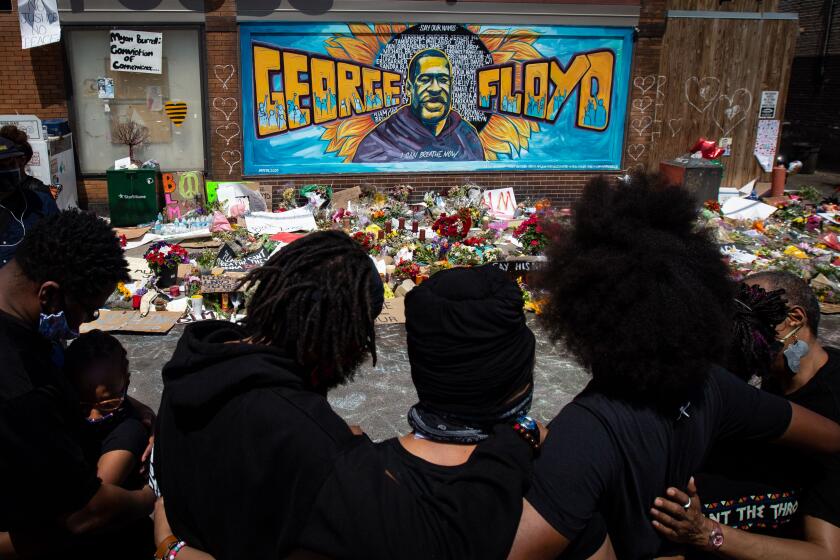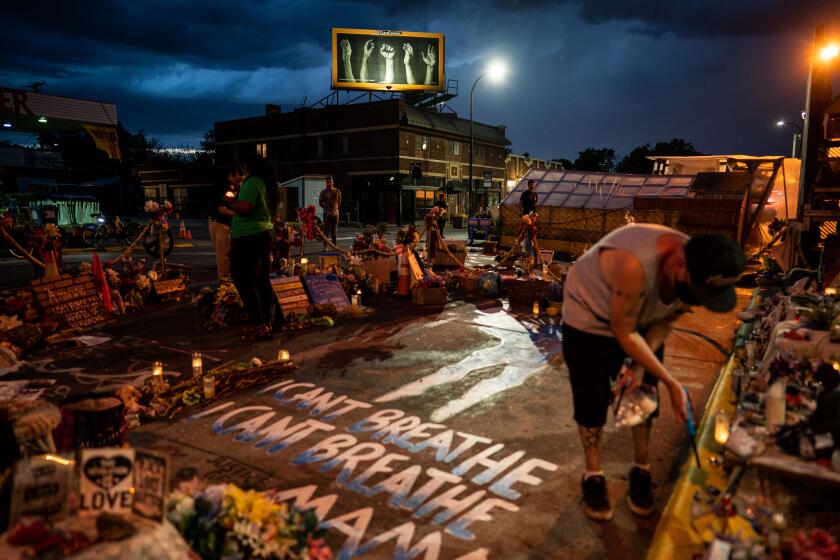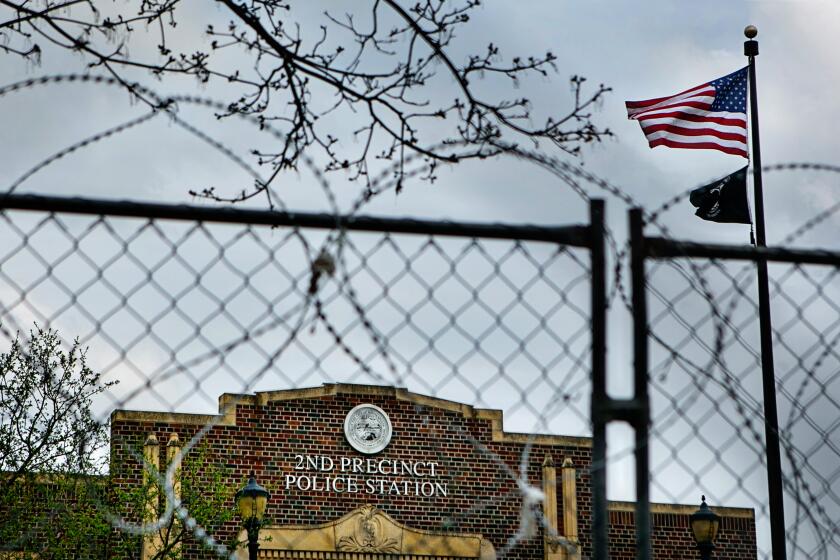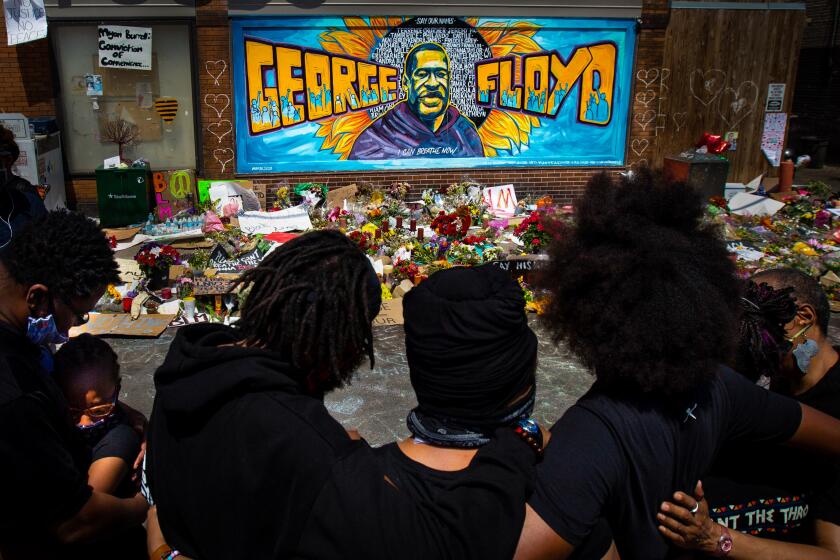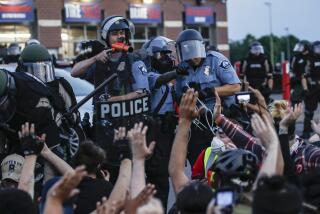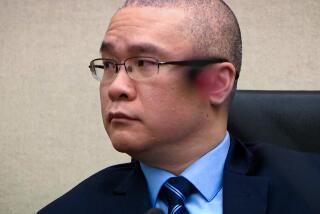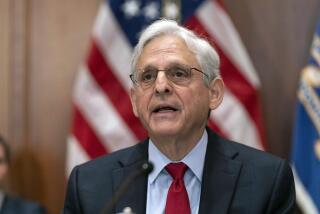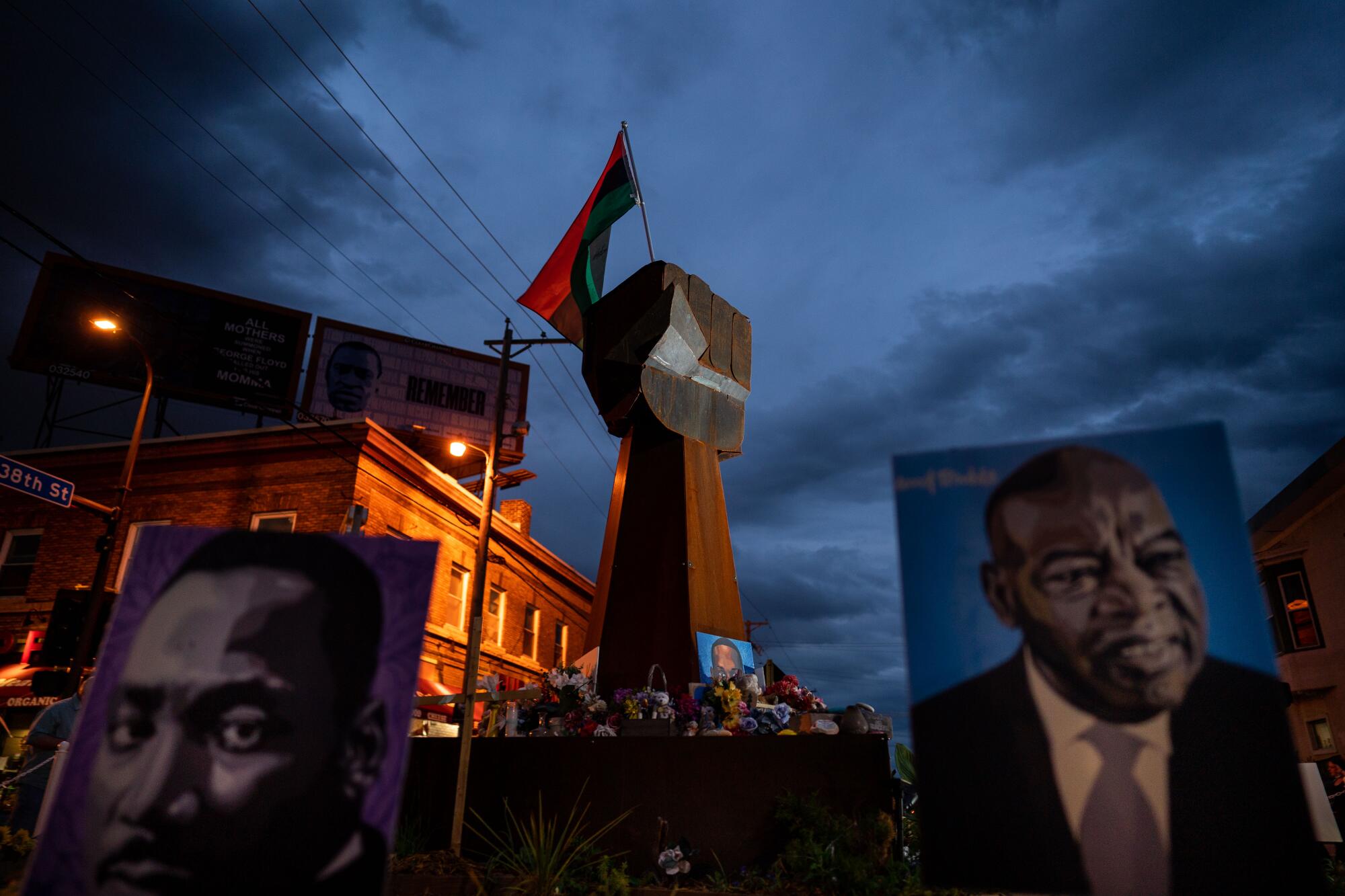
George Floyd’s death transformed lives around the world, but nowhere as profoundly as in Minneapolis.
Relatives of Black men who died at the hands of Twin Cities police took to the streets, confronting officers in riot gear and demanding accountability. Businesses struggled to stay afloat as others were boarded up or burned. More than a dozen police officers resigned almost immediately; hundreds more suffered post-traumatic stress.
A year later, Minneapolis has rebounded. Tensions eased after a jury last month convicted former officer Derek Chauvin of murder. Many businesses shed their plywood armor.
But Floyd’s death set many Twin Cities residents on an emotional journey that didn’t end with the trial. Some broke down, considered suicide, left jobs, lost employees, started nonprofits, led protests, had babies, visited or refused to visit the site where Floyd died.
In the run-up to the one-year anniversary of Floyd’s death on Tuesday, they expressed fear and frustration, disillusioned by an America that had failed to live up to its promise. But they also found reasons to feel hopeful.
::
Chris Steward fought hard to stay a Minneapolis police officer, only to quit after Floyd’s death.
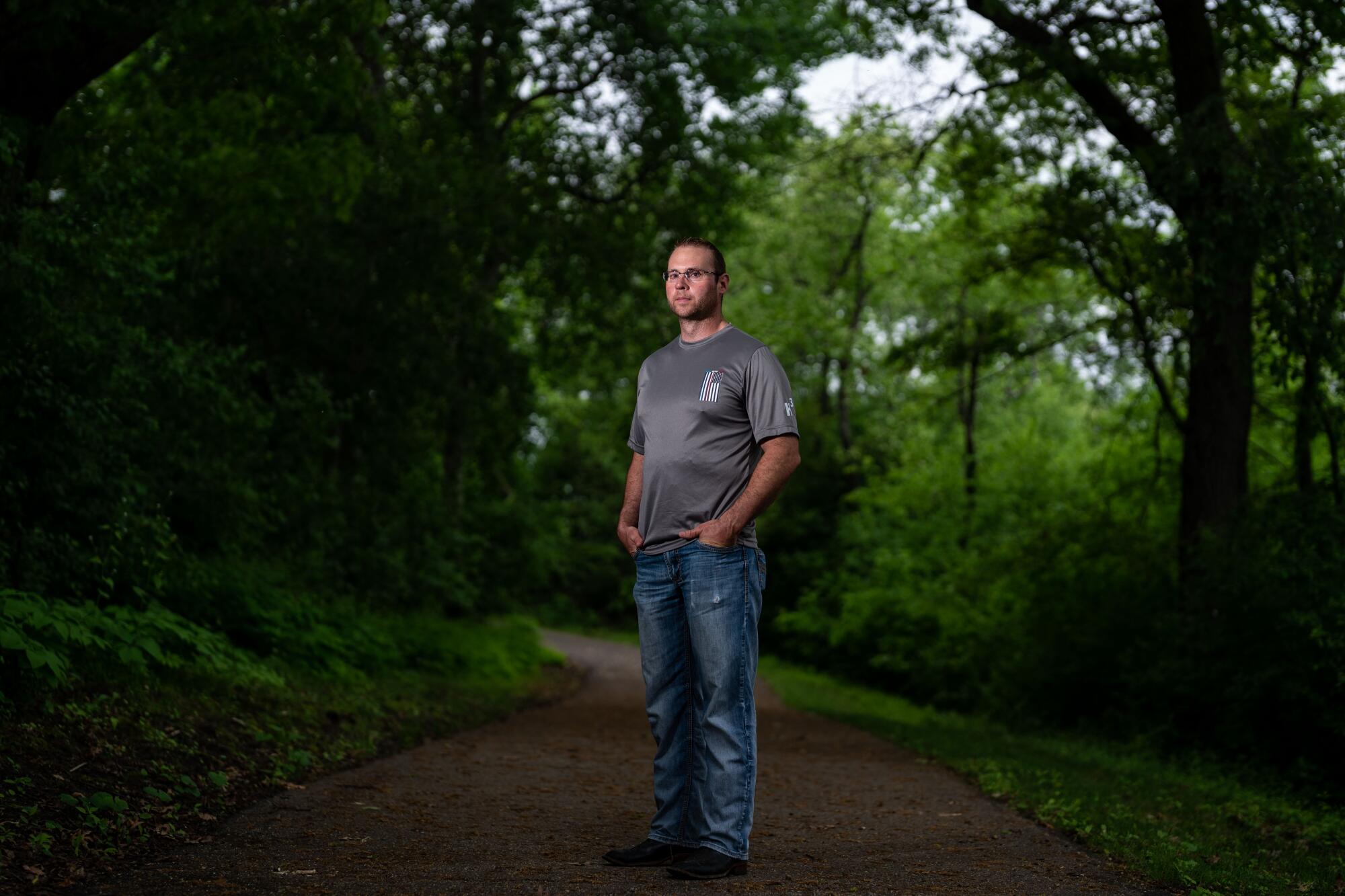
In 2019, Steward — who had joined the department in 2006 — faced pressure from superiors to resign after he lost his left eye due to an infection following a medical procedure. Steward, 37, who had grown up wanting to be a police officer, initially refused to leave. He had spent four years on a neighborhood-directed patrol unit, building bridges with minority communities in the city’s northeast, where many residents wanted more police officers on their streets, not fewer.
So he filed a lawsuit against the department alleging discrimination based on his disability. He qualified for the SWAT team and, a month before Floyd’s death, won a promotion to sergeant. Steward felt vindicated. He struggled with post-traumatic stress disorder from years of working violent crimes but thought he could cope.
Minneapolis is beginning to grapple with its racial injustices past and present amid the George Floyd protests.
Then Floyd died, protests erupted, and Steward’s PTSD worsened. At the department’s 2nd Precinct, he supervised officers who felt constantly threatened. He was devastated when city leaders let protesters overrun the 3rd Precinct to the south, near where Floyd died.
“That was a message to the extreme left that if we push with enough violence, we can take over certain aspects of society,” Steward said during an interview this week at his attorney’s office in the suburb of Eden Prairie.
Driving to work from the suburban home he shared with his wife and 3-year-old daughter, Steward had flashbacks of “the riots” and tensed, palms sweating. He suffered nightmares. One day, he thought, “I’d rather eat my own gun than go to work.” He started planning to commit suicide.
“I had to choose: my profession or my family and my well-being,” he said.
Being a police officer was his identity. But he wanted to live. So before the end of June, he quit. He felt like he was abandoning north-side residents.
“Due to what’s happened during the past year, a lot of those bridges have been burned,” he said.
On the anniversary of George Floyd’s murder, people march in Minneapolis and other cities to remember him and continue calling for social justice.
Steward stopped watching the news last fall because it was too stressful, including coverage of the Chauvin trial (he had faith that there would be a conviction). He avoided traveling into Minneapolis, because it triggered his PTSD.
When the U.S. Capitol was attacked Jan. 6, he was frustrated to hear national leaders condemn the insurrection.
“Where was that anger when the 3rd Precinct was given up?” he asked.
Steward, a self-described conservative, saw the insurrectionists as emboldened by the Minneapolis protests, with an attitude of “If they can get away with it, so can we.”
“They were all wrong,” he said.
Do cities defund departments and invest elsewhere, or should the status quo remain? The outcome of the Derek Chauvin trial could be decisive.
Steward noted that crime has spiked in Minneapolis, as it did in the 1990s, when the city was derided as “Murderopolis.” There’s more than one carjacking a day. Shootings have more than doubled from this time last year, as have homicides — 31 so far, including three children fatally shot in recent weeks.
Minneapolis police started the year with 817 officers but are down by 200. Steward’s former colleagues tell him morale is “nonexistent,” and they face a “fear of doing something wrong, even with the best of intentions” and that city leaders won’t back them up. Seeking help for mental health issues is stigmatized, he said.
This spring, Steward welcomed a son. He has settled his lawsuit against the city for an undisclosed amount and started a nonprofit, Heroes Helping Heroes, that’s offering first responders camping, golf and fishing trips this summer to relieve PTSD.
“Maybe we can normalize it and make it easier for people to get help,” he said.
::
“Justin Teigen was brutally beaten to death here in the state of Minnesota and thrown inside of a trash dumpster Aug. 19, 2009,” Toshira Garraway told a crowd of several hundred who gathered Sunday at a memorial outside the downtown courthouse where Chauvin was convicted of murdering Floyd.
Teigen, 24, was the fiancé of Garraway, who’s the mother of their now 15-year-old son. For years, Garraway has been demanding an independent investigation into how Teigen died after being chased by St. Paul police.
“These are racially motivated murders. It doesn’t matter if you have on a police uniform, regular clothes or a Klu Klux Klan outfit,” Garraway shouted, her blond curls shaking as she pointed at the mayor, governor and Sens. Tina Smith and Amy Klobuchar, seated at the front of the crowd. “If you’re not for the people, you’re against the people.”
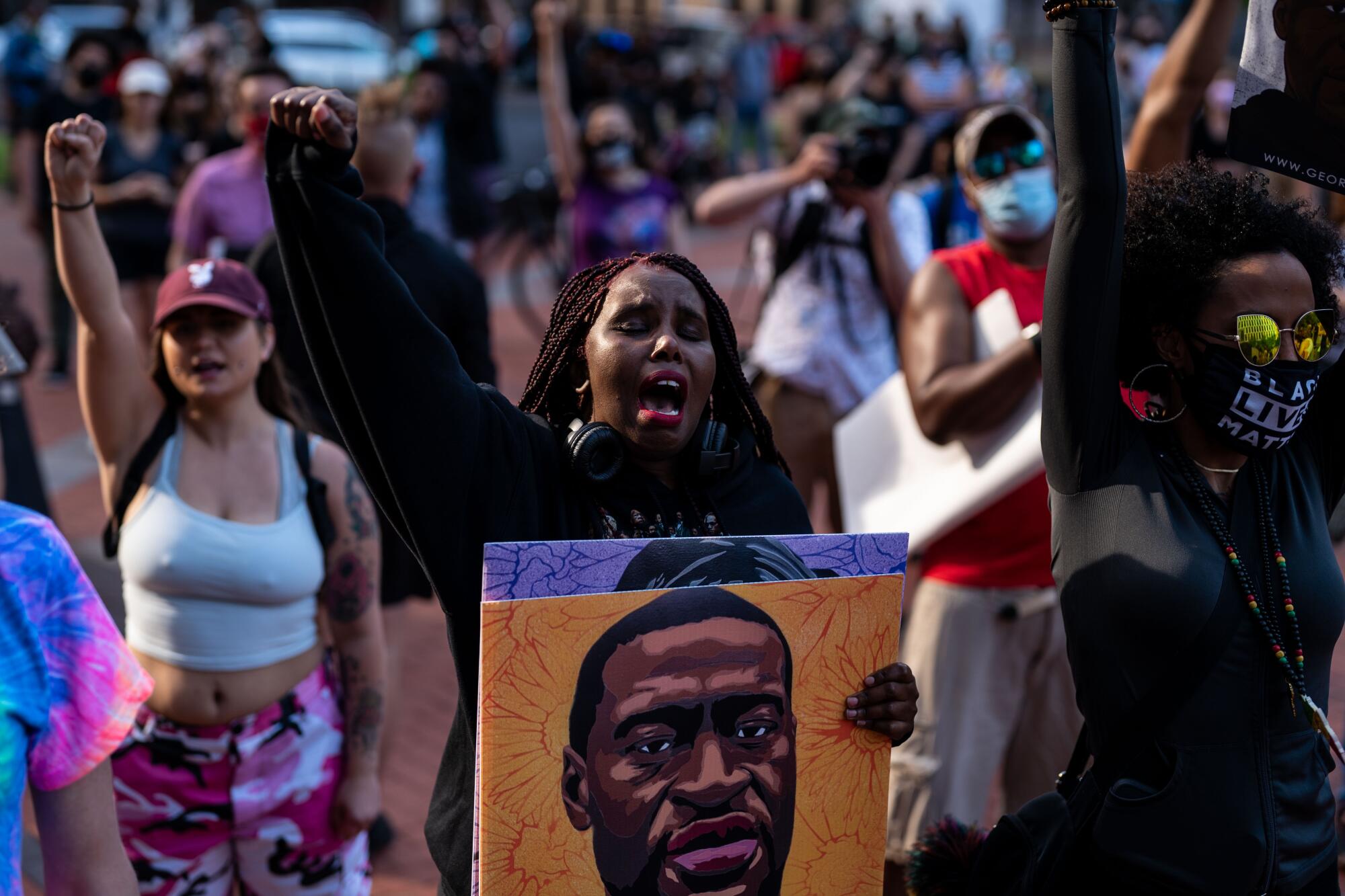
Garraway, 35, has become a powerful voice since Floyd’s death. She has the ear of state Atty. Gen. Keith Ellison and other Democratic state lawmakers. After Teigen’s death, she started a nonprofit to aid fellow relatives of those killed by police, Families Supporting Families Against Police Violence. Now she’s a mainstay at Twin Cities protests. When 20-year-old Daunte Wright was fatally shot by a police officer last month in a suburb, Garraway left a protest she was leading and was soon at Wright’s mother’s side.
At Sunday’s rally, Catie Wright greeted Garraway from where she sat in the back row, between Jamar Clark’s sister and Emmett Till’s cousin.
It’s a club no one wants to join. These Black families have lost loved ones to police brutality. The Chauvin trial could bring justice.
Garraway’s phone has been blowing up ahead of the memorials this week as relatives dealt with loss, activists pushed for police reforms and state legislators stalled. During a Zoom call last week, state Democrat legislative leaders questioned why Garraway had protested outside the suburban home of a Republican leader, a former corrections officer who has blocked votes on reforms in the Republican-controlled state Senate, including removing statutes of limitations on investigations into cases like Teigen’s. Garraway was unapologetic.
“I did protest his house, because he’s sitting out there in Maple Grove twiddling his thumbs with his white privilege,” she said. “I’m not going to sit here and appease a privileged white man.”
During the call, Garraway warned Democrats, who hold the statehouse and governor’s mansion, that if they don’t leverage their power to enact at least moderate police reforms, they put the community and police at risk.
“This is exactly what happened when George Floyd was killed,” she said. “We have a space for another George Floyd to happen. By passing these laws, we remove that space.”
Before the call ended, Garraway had texted fellow activists about plans to protest outside the conservative lawmaker’s church, too.
She has felt frustrated but hopeful during the past year as public attention has focused on police brutality.
“People that have not been affected, their eyes are opened now, they see it,” she said after the Zoom call over lunch at Olive Garden, where she often meets a mom from her group. “The community, to a degree, has come closer together to fight against this.”
But it has also been exhausting to have to retell her story. Sometimes she gets off the phone with mothers in her group and doesn’t even realize she’s crying.
“People look at me like an organizer. They forget I’m a human being who lost somebody,” she said. “I’m just so tired of explaining myself.”
::
Tomme Beevas has a secret even his friends don’t know: He’s never been to George Floyd Square.
“My spirit, my body, all of it is shaking thinking about going over there,” said Beevas, 41, laughing nervously and rattling his shoulder-length dreadlocks as he sat at a picnic table outside his Jamaican restaurant last week. He pictured himself at the site where Floyd was killed and thought he might collapse, overcome by grief. But he was determined to make the pilgrimage for the memorial “to honor the place that man was lynched.” When he arrived Tuesday, people were kneeling for nine minutes, the time Chauvin held Floyd down. Beevas joined them. “It was like a warm hug from a grandma,” he said, as he delivered food and tents to volunteers. “It shows what community is supposed to be about.”
He pictures himself at the site where Floyd was killed and thinks he might collapse, overcome by grief. But he’s determined to make a pilgrimage Tuesday, “to honor the place that man was lynched.”
Pimento Jamaican Kitchen & Rum Bar is about a mile and a half north of the square, but Beevas never boarded up during last year’s protests, even as surrounding storefronts did, because “boarding up would send the message that we were afraid.”
“The community was there to protect and support us,” he said.
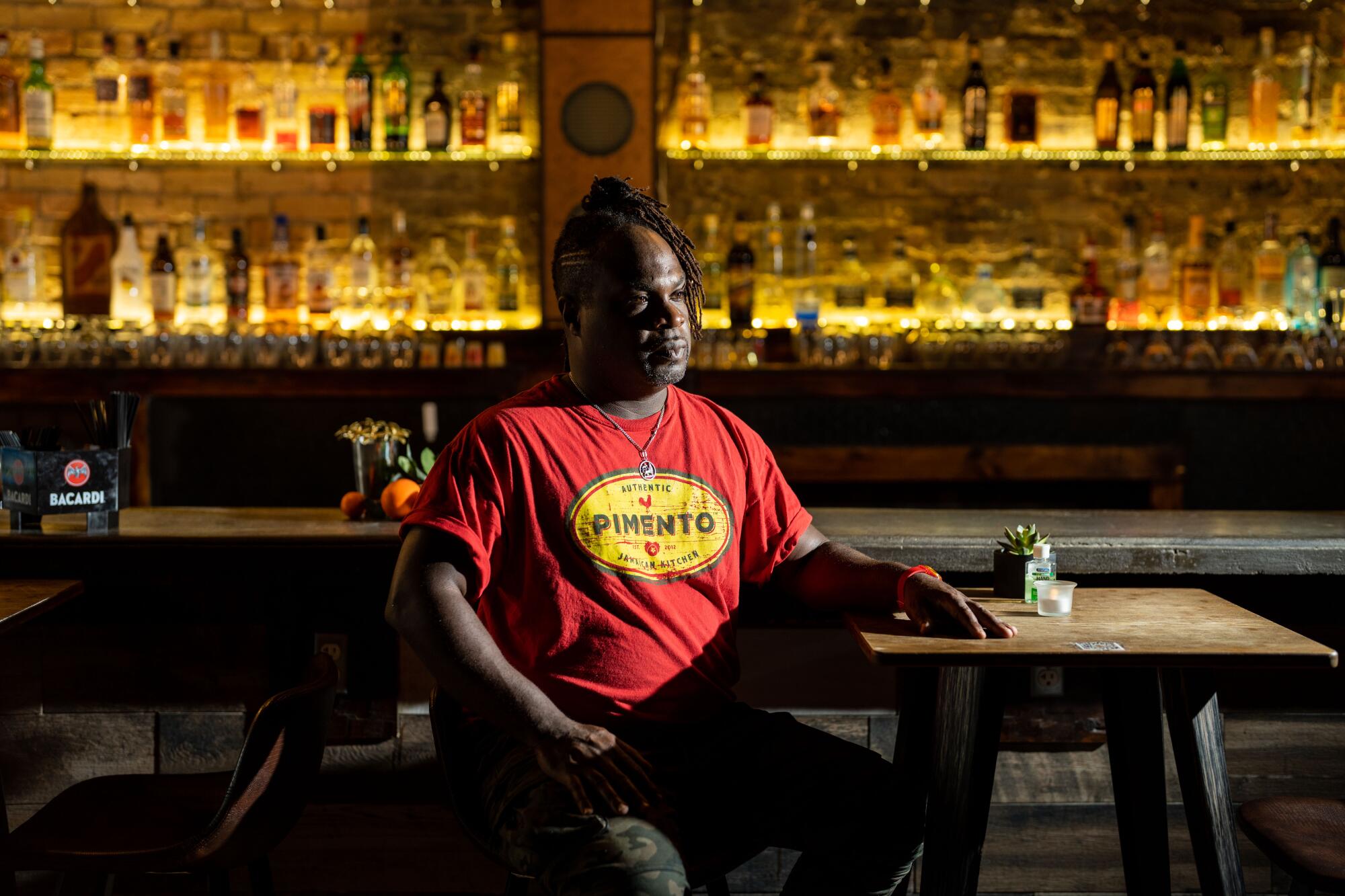
After Beevas received online threats from white supremacists, he said, hundreds of volunteers patrolled his block; the restaurant was never vandalized. In the days after Floyd’s death, Beevas converted the site into a “supply depot” that gave away about $1 million in donations, including kits for volunteer medics.
“We switched from selling jerk chicken and Red Stripe [beer] to giving away baby formula and diapers,” he said.
Beevas had moved to Minneapolis in 2006 from Washington, D.C. He opened his restaurant in 2013 after winning the Food Network show “Food Court Wars,” adding locations in St. Paul and U.S. Bank Stadium and a food truck. He went from a staff of 50 before the protests down to seven and has rebounded to about 20.
After Floyd’s death, he held a summit with the mayor and other community leaders in the restaurant’s backyard and started Pimento Relief Services, a nonprofit corporation focused on economic, social and political “liberation.” That includes addressing food deserts in neighborhoods like his, lending to Black would-be business owners and fundraising for grass-roots political leaders. After Wright was killed, they fed thousands of local families and sponsored a COVID-19 vaccination clinic.
“This community can get it right. We have the resources and the brain power to make this a model for the whole country,” Beevas said, pausing to greet neighbors and employees.
As hopeful as he is about Minneapolis’ future, Beevas still fears for his safety. He has a 4-year-old daughter and is expecting a son in July.
“As a Black man getting ready to raise a Black boy in America, that terrifies me,” he said. “I live in a progressive neighborhood, have my master’s, yet I’m afraid to take out my trash at night. That’s the reality of America today. My life is at risk, and there’s nothing I can do to protect myself, and there’s nothing I can do to convince my wife that I can protect my child.”
::
Last weekend, before conservatives held a rally for first responders at the Minnesota Capitol, opponents circulated posts online claiming it was a rally to “stand up for white people whose rights are being stolen.”
The Twin Cities area has “become very divided” over police reform, said Marina Weddington, a volunteer police chaplain who spoke at the rally. “There’s a group that says we need all these things and a group that says, ‘Why?’”
In her suburb, Weddington senses an “uneasiness,” especially among seniors.
“There’s concern about, ‘Are you antifa? Are you Black Lives Matter? Why do you have to impose your beliefs on us?’” she said.
Weddington, 67, retired after working for 45 years as a service manager for a phone company. A nondenominational Christian, she considers herself a right-wing Republican. The daughter of a single mother, she grew up in public housing and on welfare. She volunteered with the police as a way to repay the government.
Her ex-husband and 37-year-old son are Black, and she recalled the racism they encountered when traveling on vacations in the South in the 1970s.
“I lived through civil rights — what a difference!” she said. “Up until a year or so ago, things were great. Now there’s this dividing by race again.”
Weddington said she’s upset to see movements to defund police and to rename schools like Bloomington’s Jefferson High. She’s encouraged when she sees people drop off cards, food and children’s drawings at the police station, “being more intentional about support for police.”
She called Floyd’s death “horrendous” but wasn’t sure Chauvin received a fair trial, citing a protest at which U.S. Rep. Maxine Waters said, “We’ve got to get more confrontational.” Weddington wondered if jurors voted to convict out of fear that if they didn’t, they would be targeted by protesters.
As the anniversary of Floyd’s death approached, she worried that protests might turn violent.
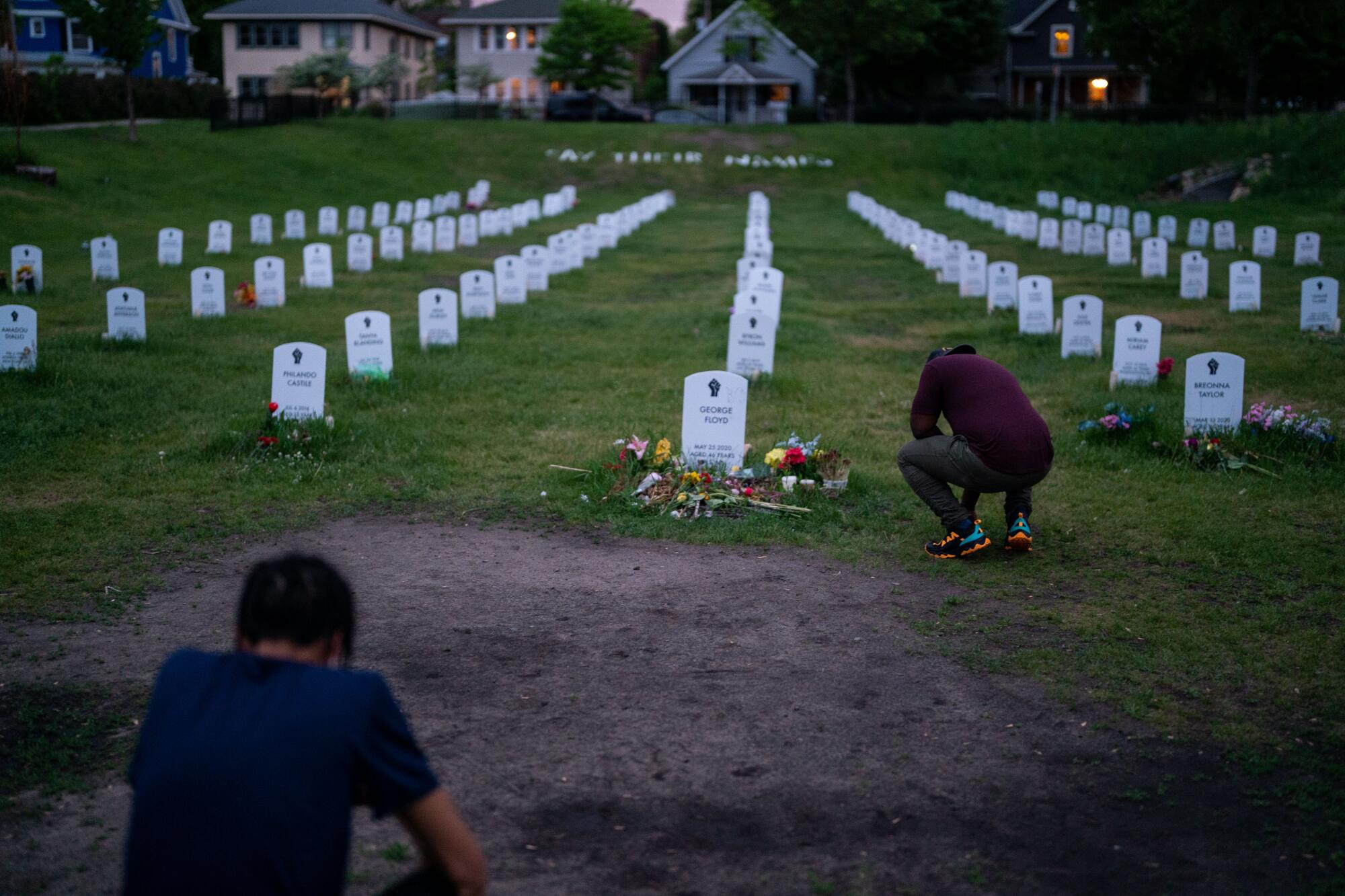
“It concerns me for our officers. Are there going to be more attacks on officers, on buildings?” she asked.
Much of her volunteer work involves responding to crime scenes and consoling those who have lost loved ones. She has worked with Protestant pastors but also with Catholic priests, a rabbi and an imam. And she has watched police de-escalate situations that could have turned violent.
“People just need to start listening, hearing, be calm and not be triggered by an opposing view,” Weddington said, although she understands how hard that is in a region that’s still so wounded.
“They watched their businesses burn, they watched their homes damaged, they watched the video of George Floyd, the police department burned,” she said. “I can’t imagine there was anyone who wasn’t traumatized.”
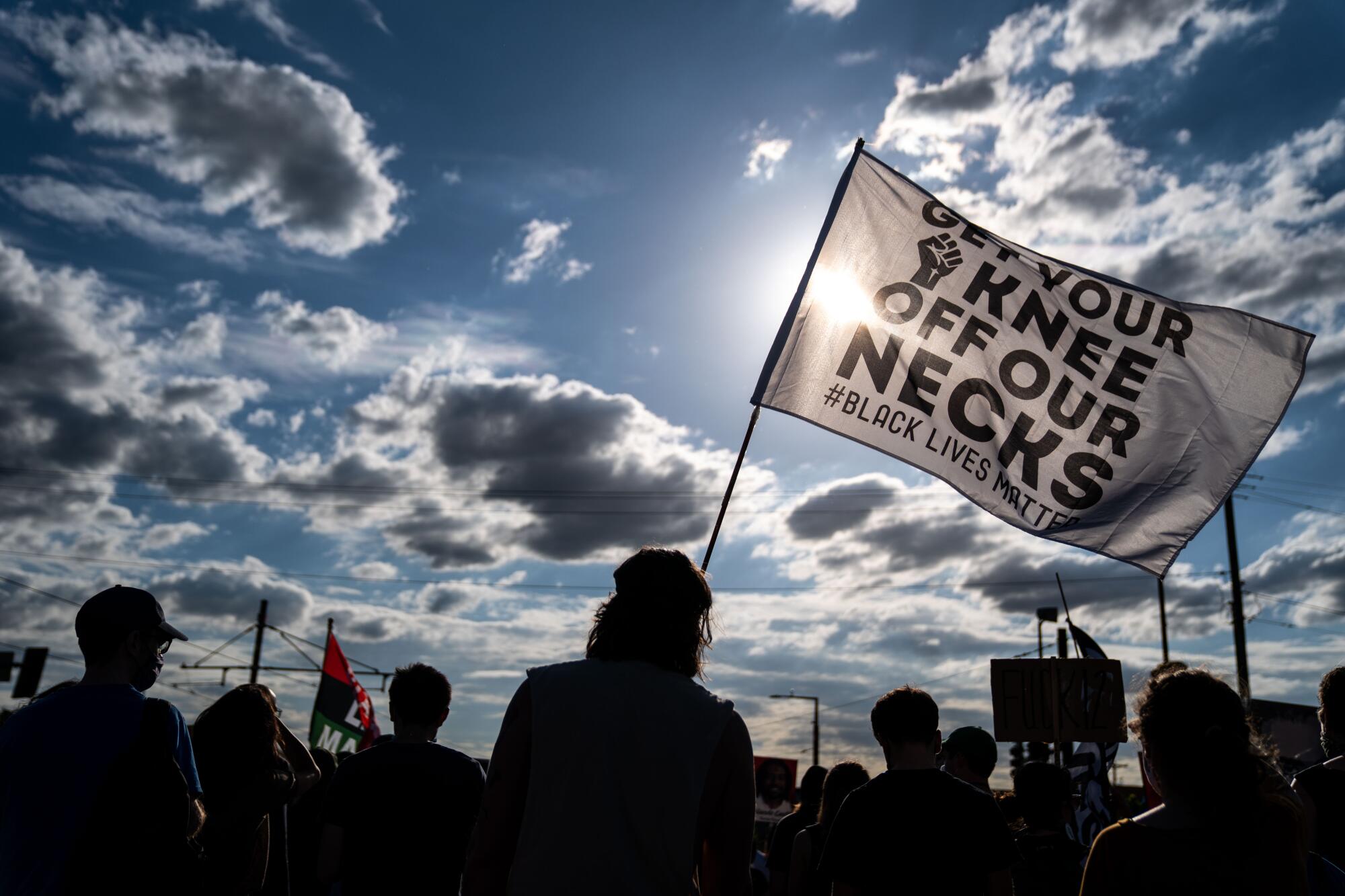
::
After George Floyd died, Kelly Sherman-Conroy discovered that she had a new mission: training local pastors, many of them white, to become chaplains ministering to those traumatized, “to be culturally aware, to deescalate and to check their privilege.”
Sherman-Conroy, 42, is minister of social justice and advocacy at a Twin Cities Lutheran church, a single mother pursuing her doctorate at a local seminary. She’s also Native American, Oglala Lakota, from South Dakota’s Pine Ridge Reservation, where she remembers as a child meeting visiting Christian missionaries.
“You can’t just send people in,” to communities traumatized by violence, she said, because, “their presence could cause more trauma.”
Days after Floyd’s death, she trained the first 30 chaplains. Then she started holding daily trainings. Over the course of the year, she has trained 250 chaplains, most from the Twin Cities.
“This was never meant to last a year, but clearly there’s a need for people who are leaders in communities of faith to do better,” Sherman-Conroy said over lunch last week at Midtown Global Market on Lake Street, where some nearby businesses damaged during last year’s protests were still boarded up.
In trainings, Sherman-Conroy called chaplains out about white fragility, defensiveness and resistance to recognizing implicit biases. Some bailed after volunteering last summer, saying they had done enough, she said, but “I do see a difference in the chaplains who have withstood this time.”
She’s seen some become aware of microaggressions and other behaviors they never noticed before. One woman who used to message her privately in solidarity after meetings now speaks up on her behalf.
“This is the moment we’re at in our communities with white people,” Sherman-Conroy said. “What do you do now? Because you’re starting to be faced with your own biases, your own privilege, and it’s uncomfortable.”
On Sunday, Sherman-Conroy helped lead an interfaith memorial service for Floyd at a local Lutheran church. On Tuesday, she planned to host “healing circles” at George Floyd Square. As she prepared, she thought about the Lakota term Mitákuye Oyás’iŋ — “all are related” — and how interconnected her community remains.
More to Read
Start your day right
Sign up for Essential California for news, features and recommendations from the L.A. Times and beyond in your inbox six days a week.
You may occasionally receive promotional content from the Los Angeles Times.

